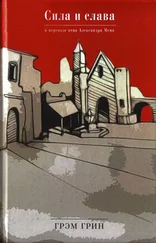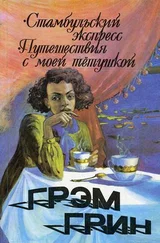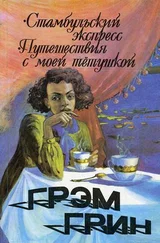Грэм Грин - The Comedians
Здесь есть возможность читать онлайн «Грэм Грин - The Comedians» весь текст электронной книги совершенно бесплатно (целиком полную версию без сокращений). В некоторых случаях можно слушать аудио, скачать через торрент в формате fb2 и присутствует краткое содержание. Год выпуска: 1966, Жанр: Классическая проза, на английском языке. Описание произведения, (предисловие) а так же отзывы посетителей доступны на портале библиотеки ЛибКат.
- Название:The Comedians
- Автор:
- Жанр:
- Год:1966
- ISBN:нет данных
- Рейтинг книги:3 / 5. Голосов: 1
-
Избранное:Добавить в избранное
- Отзывы:
-
Ваша оценка:
- 60
- 1
- 2
- 3
- 4
- 5
The Comedians: краткое содержание, описание и аннотация
Предлагаем к чтению аннотацию, описание, краткое содержание или предисловие (зависит от того, что написал сам автор книги «The Comedians»). Если вы не нашли необходимую информацию о книге — напишите в комментариях, мы постараемся отыскать её.
The Comedians — читать онлайн бесплатно полную книгу (весь текст) целиком
Ниже представлен текст книги, разбитый по страницам. Система сохранения места последней прочитанной страницы, позволяет с удобством читать онлайн бесплатно книгу «The Comedians», без необходимости каждый раз заново искать на чём Вы остановились. Поставьте закладку, и сможете в любой момент перейти на страницу, на которой закончили чтение.
Интервал:
Закладка:
'But it's paganism,' Mrs Smith persisted.
'The right therapy for Haitians. The American Marines tried to destroy Voodoo. The Jesuits tried. But the celebrations go on yet when a man can be found rich enough to pay the priest and the tax. I wouldn't advise you to go.'
'She's not easily frightened,' Mr Smith replied. 'You should have seen her in Nashville.'
'I don't question her courage, but there are features that for a vegetarian …'
Mrs Smith asked sternly, 'Are you a Communist, Doctor Magiot?'
It was a question I had wanted to ask many times and I wondered how he would answer.
'I believe, madame, in the future of Communism.'
'I asked if you were a Communist.'
'My dear,' Mr Smith said, 'we have no right …' He tried to distract her. 'Let me give you a little more Yeastrel.'
'To be a Communist here, madame, is illegal. But since American aid stopped we have been allowed to study Communism. Communist propaganda is forbidden, but the works of Marx and Lenin are not — a fine distinction. So I may say I believe in the future of Communism; that is a philosophical outlook.'
I had drunk too much. I said, 'As young Philipot believes in the future of the Bren gun.'
Doctor Magiot said, 'You cannot stop martyrs. You can only try to reduce their number. If I had known a Christian in the days of Nero I would have tried to save him from the lions. I would have said, "Go on living with your belief, don't die with it."
'Surely very timid advice, doctor,' Mrs Smith said.
'I cannot agree, Mrs Smith. In the western hemisphere, in Haiti and elsewhere, we live under the shadow of your great and prosperous country. Much courage and patience is needed to keep one's head. I admire the Cubans, but I wish I could believe in their heads — and in their final victory.'
Chapter II
1
I HAD not told them at dinner that a rich man had been found and a Voodoo ceremony was to take place that night somewhere on the mountains above Kenscoff. It was Joseph's secret and he had only confided in me because he needed a lift in my car. If I had refused I am sure he would have tried to drag his damaged limb the whole way. The hour was past midnight; we drove some twelve kilometres and when we left the car on the road behind Kenscoff we could hear the drums beating very gently like a labouring pulse. It was as though the hot night lay there out of breath. Ahead was a thatched hut open to the winds, a flicker of candles, a splash of white.
This was the first and the last ceremony I was to see. During the two years of prosperity, I had watched, as a matter of duty, the Voodoo dances performed for tourists. To me who had been born a Catholic they seemed as distasteful as the ceremony of the Eucharist would have seemed performed as a ballet on Broadway. I only went now because I owed it to Joseph, and it is not the Voodoo ceremony I remember with most vividness but the face of Philipot, on the opposite side of the tonnelle, paler and younger than the negro faces around him; with his eyes closed, he listened to the drums which were beaten softly, clandestinely, insistently, by a choir of girls in white. Between us stood the pole of the temple, stuck up, like an aerial, to catch the passage of the gods. A whip hung there in memory of yesterday's slavery, and, a new legal requirement, a cabinet-photograph of Papa Doc, a reminder of today's. I remembered how young Philipot had said to me in reply to my accusation, 'The gods of Dahomey may be what we need.' Governments had failed him, I had failed him, Jones had failed him — he had no Bren gun; he was here, listening to the drums, waiting, for strength, for courage, for a decision. On the earth-floor, around a small brazier, a design had been drawn in ashes, the summons to a god. Was it a summons to Legba, the gay seducer of women, to sweet Erzulie, the virgin of purity and love, to Ogoun Ferraille, the patron of warriors, or to Baron Samedi in his black clothes and his black Tonton glasses, hungry for the dead? The priest knew, and perhaps the man who paid for the ceremony, and I suppose the initiates could read the hieroglyphics of ash.
The ceremony went on for hours before the climax; it was the face of Philipot that kept me awake through the chanting and the drum-beats. Among the prayers were little oases of familiarity, 'Libera nos a malo', 'Agnus dei', holy banners swayed past inscribed to the saints, 'Panem nostrum quotidianum da nobis hodie'. Once I looked at the dial of my watch and saw in pale phosphorescence the hands approaching three.
The priest came in from his inner room swinging a censer, but the censer which he swung in our faces was a trussed cock — the small stupid eyes peered into my eyes and the banner of St Lucy swayed after it. When he had completed the circle of the tonnelle the houngan put the head of the cock in his mouth and crunched it cleanly off; the wings continued to flap while the head lay on the dirt-floor like part of a broken toy. Then he bent down and squeezed the neck like a tube of tooth-paste and added the rusty colour of blood to the ash-grey patterns on the floor. When I looked to see how the delicate Philipot was accepting the religion of his people, I saw he was no longer there. I would have gone too, but I was tied to Joseph and Joseph was tied to the ceremony in the hut.
The drummers became more reckless as the night advanced. They no longer tried to muffle the beats. Something was happening in the inner room where the banners were stacked around an altar, and where a cross stood below a poker-work prayer, and presently a procession emerged. They were carrying what I thought at first was a corpse wrapped in a white sheet for burial — the head was covered and a black arm dangled free. The priest knelt beside the fire and blew the embers up into flames. They laid the corpse beside him, and he took the free arm and held it in the flames. As the body flinched I realized it was alive. Perhaps the neophyte screamed — I couldn't hear because of the drums and the chanting women, but I could smell the burning of the skin. The body was carried out and another took its place, and then another. The heat of the flames beat on my face as the night wind blew through the hut. The last body was surely a child's — it was less than three feet long, and on this occasion the houngan held the hand a few inches above the flame — he was not a cruel man. When I looked again across the tonnelle Philipot was back in his place, and I remembered that one arm which had been held in the flames appeared as light as a mulatto's. I told myself it could not possibly have been Philipot's. Philipot's poems had been published in an elegant limited edition, bound in vellum. He had been educated like myself by the Jesuits; he had attended the Sorbonne; I remembered how he had quoted the lines of Baudelaire to me at the swihmmming-pool. If Philipot was one of the initiates what a triumph that would represent for Papa Doc as he dragged his country down. The flames lit the photograph nailed on the pillar, the heavy spectacles, the eyes staring at the ground as though at a body ready for dissection. Once he had been a country doctor struggling successfully against typhoid; he had been a founder of the Ethnological Society. With my Jesuit training I could quote Latin as well as the houngan who was now praying for gods of Dahomey to arrive. 'Corruptio optimi. '
It wasn't sweet Erzulie who came to us that night, although for a moment her spirit seemed to enter the hut and touch a woman who sat near Philipot, for she rose and put her hands over her face and swayed gently this way, gently that. The priest went to her and tore away her hands. She had an expression of great sweetness in the candlelight, but the houngan would have none of her. Erzulie was not wanted. We had not assembled tonight to meet the goddess of love. He put his hands on her shoulders and thrust her back on her bench. He had scarcely time to turn before Joseph was in the ring.
Читать дальшеИнтервал:
Закладка:
Похожие книги на «The Comedians»
Представляем Вашему вниманию похожие книги на «The Comedians» списком для выбора. Мы отобрали схожую по названию и смыслу литературу в надежде предоставить читателям больше вариантов отыскать новые, интересные, ещё непрочитанные произведения.
Обсуждение, отзывы о книге «The Comedians» и просто собственные мнения читателей. Оставьте ваши комментарии, напишите, что Вы думаете о произведении, его смысле или главных героях. Укажите что конкретно понравилось, а что нет, и почему Вы так считаете.



